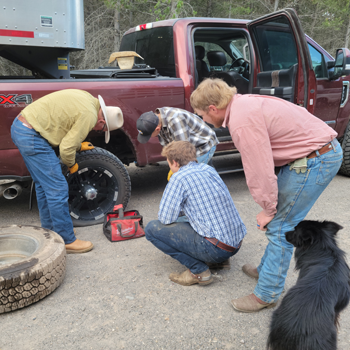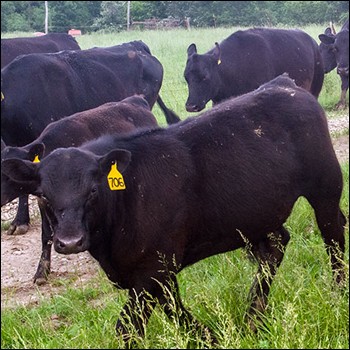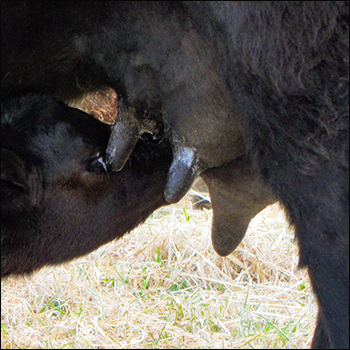
Getting Ducks in a Row
How a goals-oriented approach to succession planning can be an advantage.
Succession planning can be a deeply emotional endeavor. Whether you chose, trained or never even met the person who will take over your business, handing over the keys is bound to elicit strong feelings.
When preparing for the seamless transition of a business, place emotions on the back burner and pave the way for both your short- and long-term goals to take center stage. The priority for some is to hand the business down to a relative or key employee. For others it may be to sell to the highest bidder. Some might want a fast sale so they can enjoy retirement as soon as possible. Then there are those whose priority is to secure a legacy in the community. Goals are as individual as the individuals who set them.
Regardless of motivation, leaving a business to new proprietorship requires open communication and transparency among all involved principals, no matter if the company’s future lies in the hands of family members or nonrelatives.
Find the right fit
At times, a business owner must embark on a soul-searching mission to determine if the future leaders of the business are already in-house, or if they need to come from outside. Just because a person has been around the business a long time, or has an applicable skill set, it doesn’t necessarily make them a good fit to take the reins. This is the time when owners looking to transition must make some honest and tough choices, which may also lead to a few difficult conversations. Ultimately, these choices must be made in the best interest of the company and its value.
Plan for taxes
Understanding the tax ramifications associated with change of ownership and strategizing how best to leverage taxes while the business is in transition are paramount to succession planning. Professional legal and accounting assistance can guide owners toward a financially prudent structure for the transfer.
Know your value
Knowing the value of your business is a key ingredient to the succession-planning mix. A full business valuation is essential, as it will compare your company against industry peers and provide a snapshot of the broad economy’s effect on your operation. Should a family member be in line for succession, a thorough valuation will make certain the business is not overvalued; if that is the case, the next generation may be saddled with debt that could ultimately lead to the downfall of the business.
A financial ratio analysis can benchmark your business against others and gauge your financial strength. Strong working capital and current assets that can keep ahead of current liabilities are goals to strive for. To help prepare for this evaluation, you will need:
- Comprehensive monthly financials — Accurate profit and loss reports and balance sheets.
- Customer concentration — If your company does more than 20% of its business with one client, this can be considered a risk to a prospective buyer. A spread-out customer base is an advantage.
- Cash flow quality — Cash flow that recurs weekly or monthly is worth more than a business that is constantly seeking to retain new customers.
An industry consultant can provide categorical risk scores to help you identify changes that could enhance the worth of your business. Increasing its value prior to sale will be an advantage to the continued growth and strength of the company in its new hands.
Conduct due diligence
Conduct the necessary due diligence to make sure all accounting, legal, human resources, and information technology elements are in the proper shape for transition. Rely on professionals to help you navigate this complicated process.
Create your succession plan
Designing a succession plan that meets your specific values and goals requires thoroughness, transparency, effort and, yes, time. Decisions made ahead of the transition will have long-lasting effect on the business after you are no longer involved. Having a close connection to a team of professional advisors with the following capabilities can alleviate much of this burden:
- Business transfer strategies
- Comprehensive succession planning
- Financial planning
- Insurance and risk management
- Business valuation
- Sell-side due diligence
- Merger and acquisition (M&A) advisory
- Investment management
- Strategic tax planning
- Estate planning
Your company is often your most valuable asset, and you want to transfer it to the right successor while enhancing the value you receive.
Editor’s note: Christopher Dhanraj is the managing principal of investments for CLA Tampa. He can be reached at christopher.dhanraj@claconnect.com or 813-384-2737. Photo submitted by Shelly Hauschel. CLA offers a team of professional owner transition advisors to help seamlessly guide through every step of the succession process.
The information contained herein is general in nature and is not intended, and should not be construed, as legal, accounting, investment, or tax advice or opinion provided by CliftonLarsonAllen LLP (CliftonLarsonAllen) to the reader. For more information, visit CLAconnect.com.
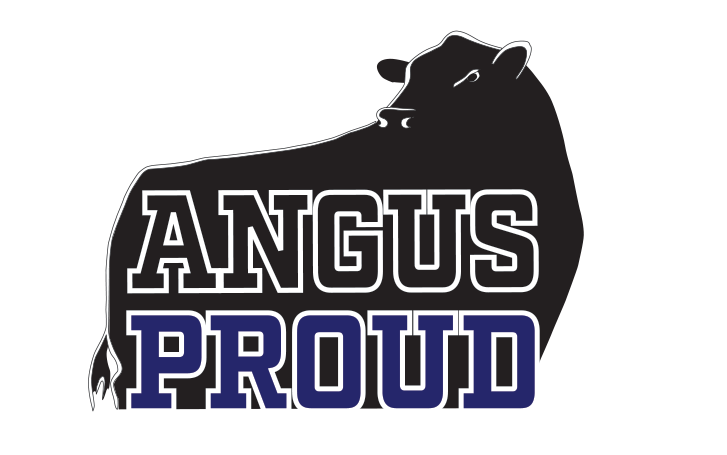
Angus Proud
In this Angus Proud series, Editorial Intern Jessica Wesson provides insights into how producers across the country use Angus genetics in their respective environments.
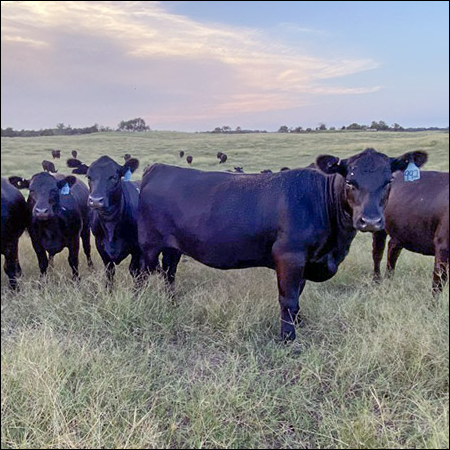 Angus Proud: Scott Sproul
Angus Proud: Scott Sproul
Oklahoma operation learned wisdom of moving calving season to better suit their marketing needs.
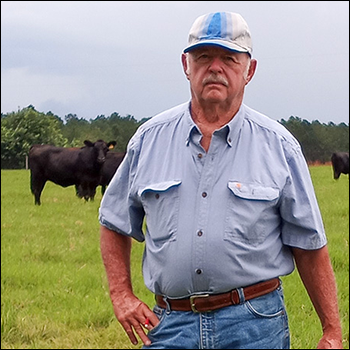 Angus Proud: Bubba Crosby
Angus Proud: Bubba Crosby
Fall-calving Georgia herd uses quality and co-ops to market calves.
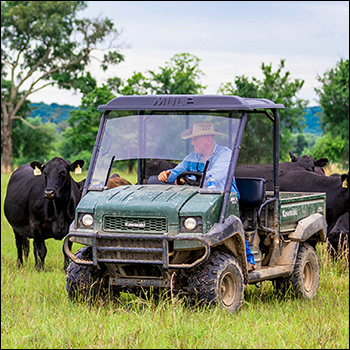 Angus Proud: Jim Moore
Angus Proud: Jim Moore
Arkansas operation retains ownership through feeding and values carcass data.
 Angus Proud: Stephen Shiner
Angus Proud: Stephen Shiner
Idaho operation rotates pastures in summer and raises crops for winter.
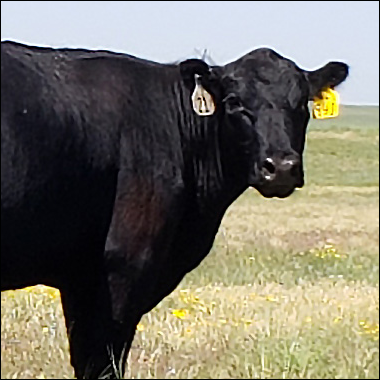 Angus Proud: Brian Nusbaum
Angus Proud: Brian Nusbaum
Angus cattle fit cattleman’s marketing goals and helped him set out on his own.
 Angus Proud: Les Shaw
Angus Proud: Les Shaw
South Dakota operation manages winter with preparation and bull selection.
 Angus Proud: Jeremy Stevens
Angus Proud: Jeremy Stevens
Nebraska operation is self-sufficient for feedstuffs despite sandy soil.
 Angus Proud: Dave Rutan
Angus Proud: Dave Rutan
Angus breeder gets the most out of his bull investment by partnering with opposite calving-season operation.
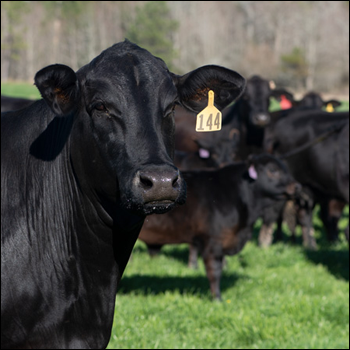 Angus Proud: Nickey Smith
Angus Proud: Nickey Smith
AngusLink helps Louisiana cattleman gain more for his calves.
 Angus Proud: Mike Moss
Angus Proud: Mike Moss
Operation’s nontraditional start lends to creativity and conservation efforts.
